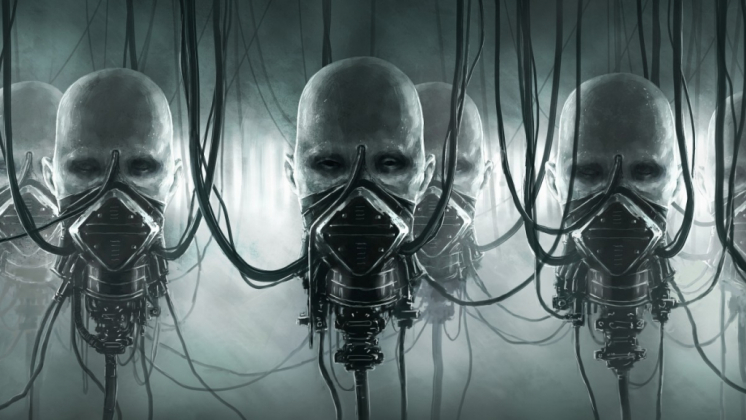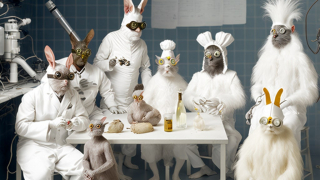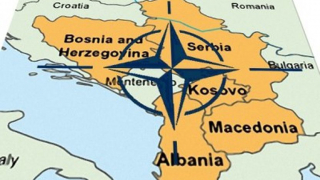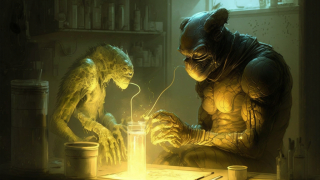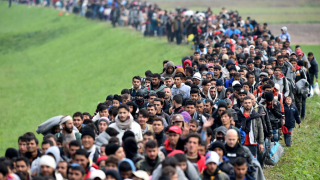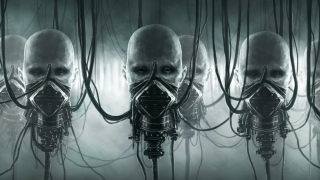Neopuritanism and anthropophobia: towards a terrifying posthuman world
We live in schizophrenic times. So, with the advent of COVID, we have seen the apostles of the “open society” and of the no-border ideology transformed, with an impressive ease, into lockdown fanatics and zealous informers: those who until yesterday were singing the praise of the uprooting and abolition of borders have converted to the cult of health apartheid, to the point of hoping for a sort of civil death for those who refuse the vaccine.
In the same way, it is not surprising that sexphobia is taking the place of sex mania, which has always been one of the characteristic figures of the liberal-progressive society born in 1968. And if the so-called sexual liberation ultimately represented nothing other than the physical transposition of mercantile freedom, a sort of internalization of commercial logic - the bodies must be naked and exposed, just as the goods must be clearly visible and available for the consumer - at first it was experienced as a radical break with a model of society judged to be repressive towards sexual impulses.
The crusade of neo-puritanism
However, in the era of Me Too and “toxic masculinity” that beguine moralism that seemed to have been archived forever has come back in vogue. Therefore, the statements that Keira Knightley made in a recent interview, where the British actress said she regretted having shot in the past sex scenes under the looks and “grunts” of men, cannot be surprising and in her opinion such scenes would be tolerable only in case the director was a woman. Moreover, similar utterances are widely accepted even outside the glossy world of Hollywood stars and influencers and lately we are witnessing a sort of neo-puritan and androphobic crusade that sees in physical contact and sex an evil to be eradicated, a violence perpetrated to the detriment of women, to the point that even the most innocent gallantry by men is equated with real harassment.
A wave of bigotry
Of course, the distancing and semi-custodial measures imposed on the population for almost a year only fuel this wave of bigotry and there are frequent lectures by the various Crisanti and Pregliasco [1] who invite citizens to refrain from sexual relations to minimize the risk of contagion, complete with praise of autoerotic practices. On the other hand, there is no doubt that some of the most influential cultural phenomena of our time, from transhumanism to cyberfeminism, are animated by a visceral hatred for the body and its limits. A hatred that behind the apparently libertarian slogans of emancipation and equality actually hides a ferocious anthropophobia, which aims at the abolition of nature and the anatomical and biological differences between individuals. It is a disembodied and post-biological conception of freedom, as well as of the human body, as if in order to be free, man is forced to deny his corporeality with its relative imperfections.
In all this, one could see a form of Neocatarianism: the Cathars, in fact, in the wake of the Manicheans, conceived the body as the prison of the soul and saw in matter the origin of all evil. This vision of the human body as something impure and imperfect is the same that we find among the progressive avant-gardes, which see technology as the means to “free” man from his limitations, first of all diseases, old age and death. Such conceptions are basically just one of the many signs of what Guénon called the volatilization of the world, and the digitization of society - to the sound of smart working, distance learning, abolition of cash and e-commerce - is creating a world that is always less material, where bodies and objects seem to collapse and dissolve into a fine dust.
The nightmare of a post-human world
Capitalism itself does not escape this process and the financialization of the economy has the same meaning: if until a few decades ago the main method of capital accumulation was centered on concrete activities - such as the production of goods and the exploitation of labour - in our days, on the contrary, it rests on absolutely fictitious and immaterial bases. The financial economy has in fact long since supplanted the real economy and it is based on a completely volatile and hypothetical wealth, founded as it is on the anticipation of a value that does not yet exist. It could be said that materialism in its fury of solidification has ended up eroding itself and indeed today we live in a literally ghostly world, where everything dissolves, thins, disembodies itself.
An entirely virtual world, which represents the dream of those who consider man as something obsolete and antiquated, something that needs to be manipulated and perfected. A dream (or rather a nightmare), however, cultivated in unsuspected times, if already at the end of the seventies the American feminist Ti-Grace Atkinson wrote: “the sexual act should no longer be the means used by society to renew the population”. And the research on the artificial uterus, in vitro fertilization, “mind uploading” and other wonders of techno-capitalism, allow us to give life to a model of society in which there is no longer room for man as we have it known. Ultimately, a dream of death and which risks plunging the whole world into an incurable melancholy dissolve.
[1] Italian experts about COVID
****************************
Original column by Flavio Ferraro:
Translation by Costantino Ceoldo

